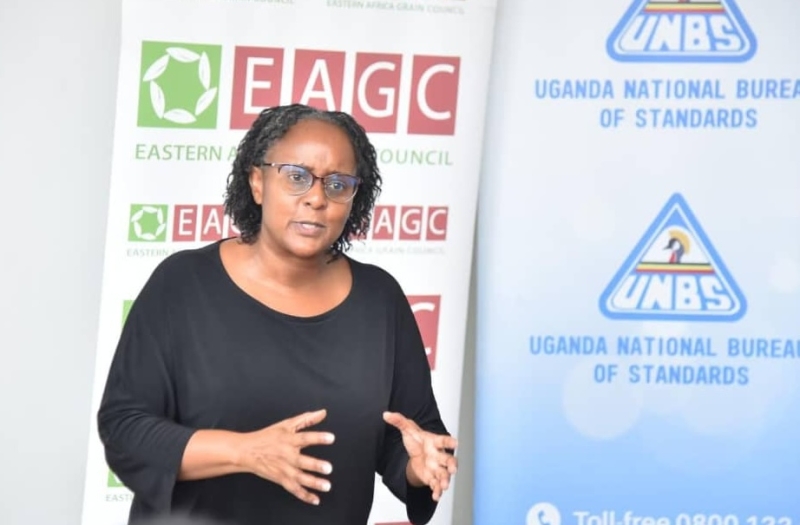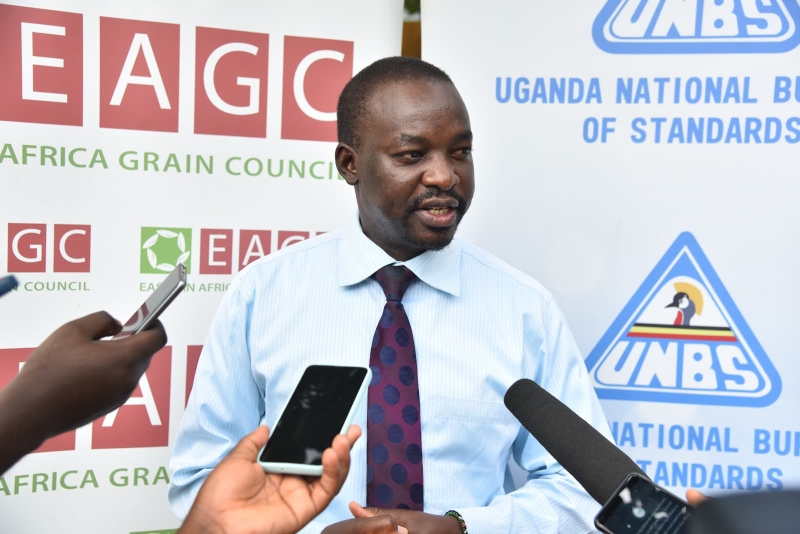By equipping MSMEs and quality officers with hands-on skills, we’re reducing post-harvest losses, enhancing Uganda’s market competitiveness, and unlocking trade opportunities
The Uganda National Bureau of Standards (UNBS) and the Eastern Africa Grain Council (EAGC) have partnered to launch a specialized training program for Micro, Small, and Medium-sized Enterprises (MSMEs) in grain handling, testing, and grading.
The initiative aims to improve grain quality management and food safety, enhancing the competitiveness of Ugandan grain products in regional and international markets.
The training aligns with UNBS’s new value proposition of growing quality MSMEs through mentorship and capacity building. By equipping local enterprises with essential knowledge and skills, the program seeks to ensure consumer protection, promote fair trade, and boost the competitiveness of Ugandan grain products in regional and international markets.

Speaking at the training held at the UNBS headquarters in Bweyogerere, Ms. Patricia Bageine Ejalu, Deputy Executive Director for Standards at UNBS, emphasized the importance of quality in Uganda’s grain sector.
Paul Ochuna, EAGC Country Manager for Uganda, described the training as timely.
"By equipping MSMEs and quality officers with hands-on skills, we’re reducing post-harvest losses, enhancing Uganda’s market competitiveness, and unlocking trade opportunities," said Paul Ochuna, EAGC Country Manager for Uganda.

The collaboration between UNBS and EAGC demonstrates a commitment to improving grain quality and safety throughout the value chain.
The training will benefit consumers, traders, and the Ugandan economy by promoting fair trade, consumer protection, and quality management.
According to the EAGC, over 40% of grain in the region is lost due to poor handling. In Uganda alone, this accounts for annual losses exceeding USD 45 million—undermining food security and limiting access to key markets such as Kenya, South Sudan, and Rwanda.













